Science
Science
Learning Outcomes
To nurture our students to be inquirers and engaged learners who can work collaboratively to explore the natural and physical world.
Teaching Approaches
To achieve the desired learning outcomes, we strive to provide a student-centred curriculum that is anchored on Structured Inquiry.
Knowledge, skills and attitudes in Science are nurtured through engaging students in hands-on activities, experiential learning like learning journeys and other programmes that expose students beyond the textbook. We are highly committed to exposing our students to Science and transdisciplinary related subject matter through various applied learning experiences.
At Mayflower Primary School, we emphasize explicit acquisition of skills through the spiral approach. Our curriculum is specially customised to teach process skills and answering techniques. At each level, we revisit skills and techniques that have been taught at the lower level and build on new skills at higher levels.
Department Programmes / Enrichment
|
S/N |
Programme |
Level |
|---|---|---|
|
1 |
Learning Journeys |
P4 and P6 |
|
2 |
ALP@STEM Scratch & WeDo |
P3 and P4 |
|
3 |
ALP@STEM SAM Labs |
P5 and P6 |
|
4 |
Science Detective |
All levels |
|
5 |
Project Work |
P3 and P5 classes |
Photos of Primary 3 and 4 discovering and engaging through ALP@STEM WeDo and Scratch!
Students learn the basics of coding through fun and interactive lessons using WeDo kits and Scratch block-based programming software.
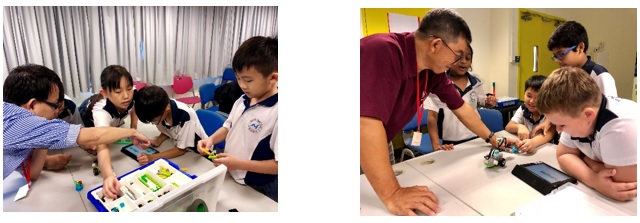
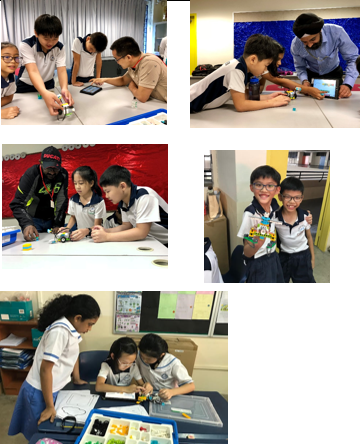
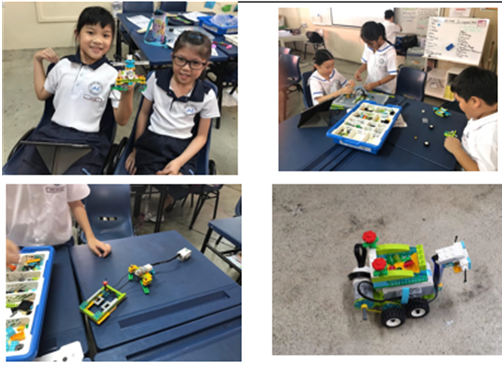
P5 and P6 students learning and unlearning through ALP@STEM Sam Labs!
Students continue their coding journey with SAM LABs – an interactive kit that allow students to explore the Internet of Things (IoT). Students identify problems faced in their community and work together in teams to come up with solutions. Using the SAM LABs kits, they apply their coding skills and come up with prototypes to address these problems.
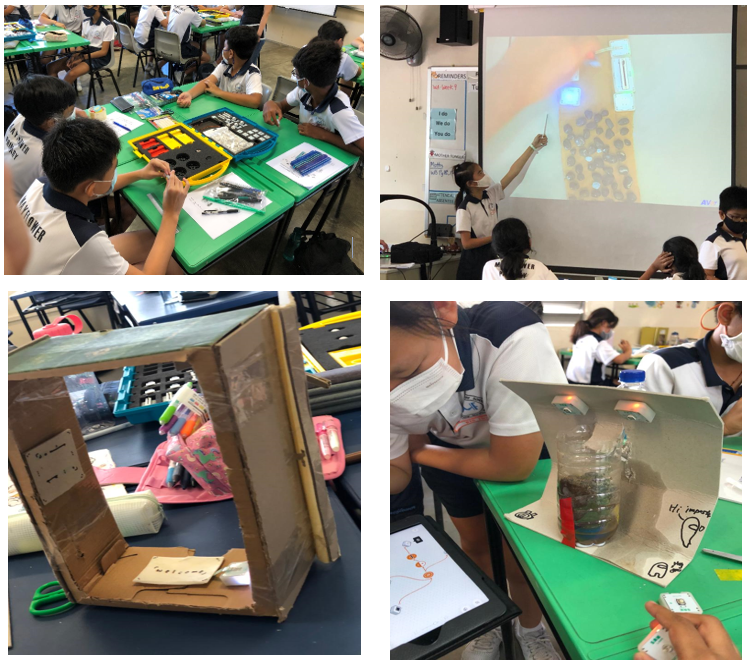
Students collaborating and applying learning during Project Work!
In Project Work, students work collaboratively to solve authentic tasks in an interdisciplinary setting. These tasks include identifying materials suitable to make grocery bags for Uncle Tan, our neighbourbood minimart owner, or to create a prototype to obtain clean drinking water in a water scarce environment using concepts learnt during Science lessons.
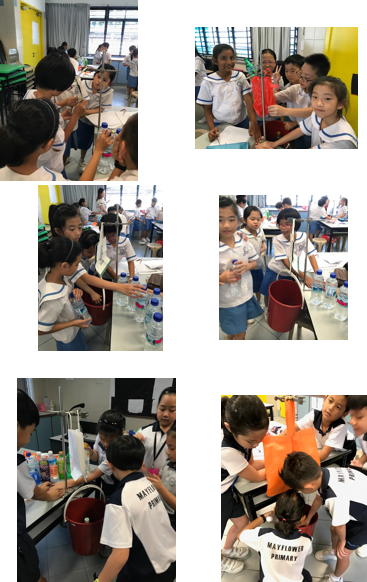
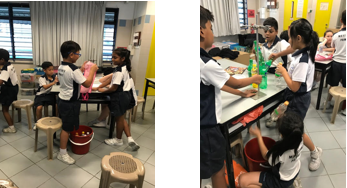
Learning Support / Talent Development
|
S/N Programme |
Levels |
|---|---|
|
1. Remediation Programme |
Selected P4 to P6 students |
|
2. Innovation Programme (IvP) |
Selected P5 students |
|
3. E2K |
Selected P4 & P5 students |
E2K Science
The E2K Science programme is tailored for upper primary students who demonstrate interest and ability in Science. Adapted from Israel’s E2K Program which was developed by the Israel Centre for Excellence through Education (ICEE), schools implement the Programme using a set of curriculum units developed by IEE for inquiry-based learning. At Mayflower Primary School, we took in our first batch of Primary 4 students in 2021.
The overall objectives complements MOE’s desired outcomes of empowering students in their learning, building their confidence and abilities in the subject area while developing their love for learning.
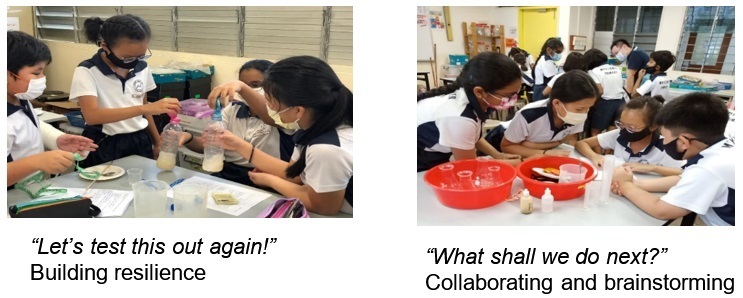
The Innovation Programme (IvP)
The IvP provides a unique opportunity for students to develop their problem solving and thinking skills. Selected Primary 5 students participate in a 9-month programme to hone their innovative skills by thinking critically about existing real-world problems and generating ideas to improve the situation. Students work collaboratively on their projects under the mentorship of partner institutions. The projects would then be submitted for IvP Project Judging from which selected projects will be showcased in the Young Innovators’ Fair.
Supporting Your Child in Learning
|
S/N |
Resources |
|---|---|
|
1. |
Connect Extend Challenge
|
|
2. |
What Makes You Say That
|
|
3 |
Science Syllabus (2014)
|

